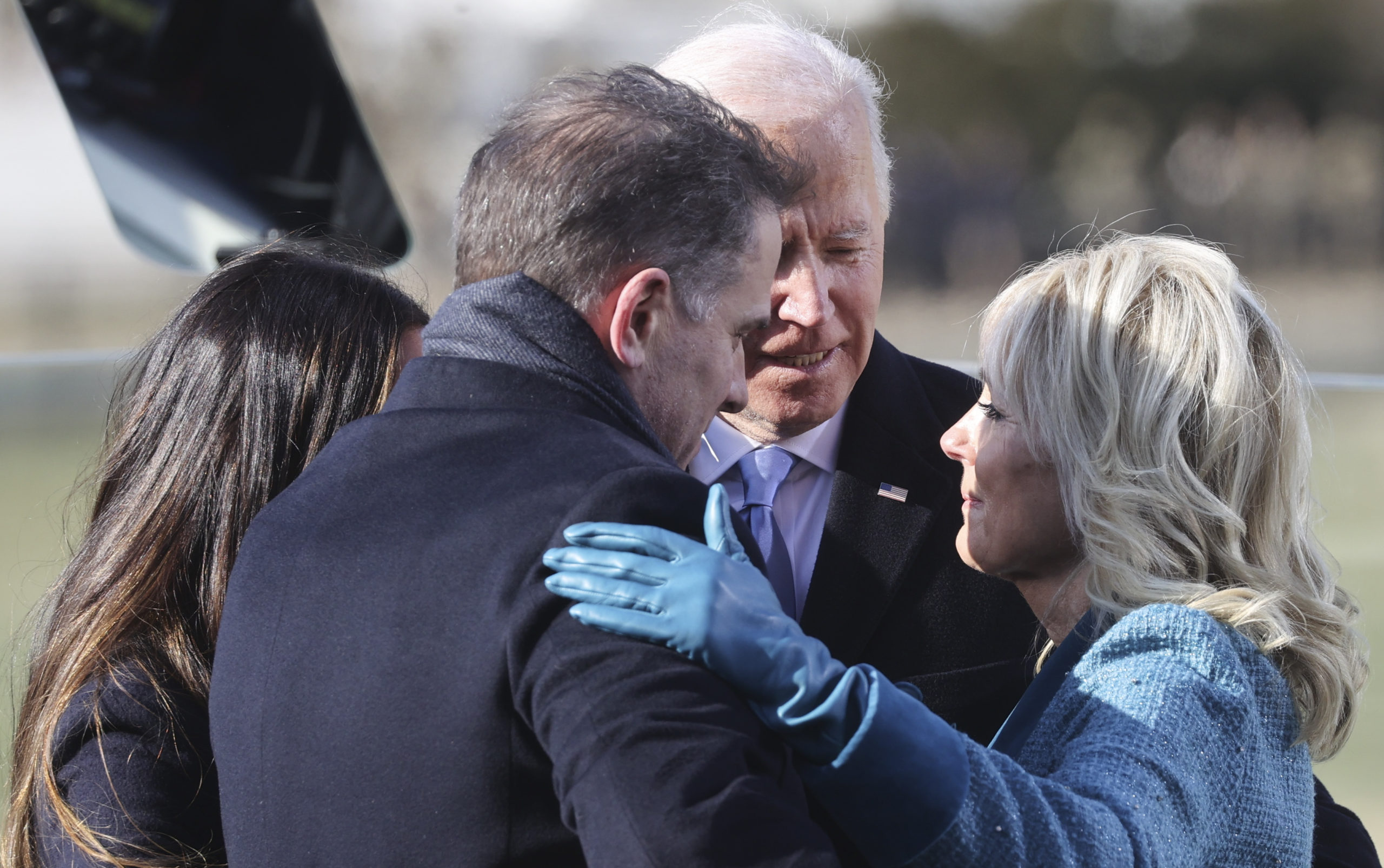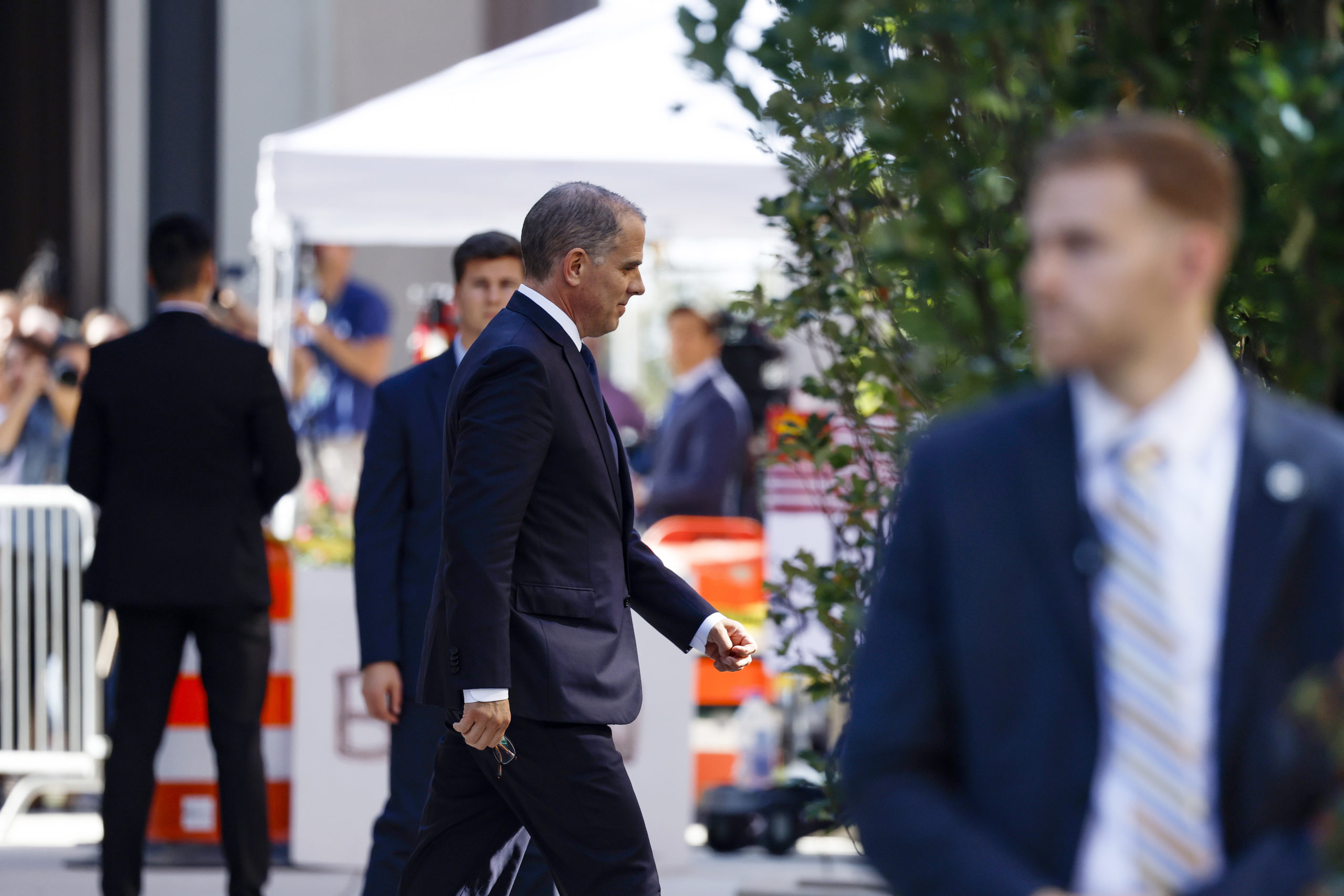Delaware U.S. Attorney David Weiss and the FBI restricted information-sharing about the Hunter Biden case with former U.S. Attorney Scott Brady, who needed assistance from the Justice Department (DOJ) to maintain open lines of communication on the investigation, according to new testimony.
Brady received support from the Principal Associate Deputy Attorney General’s Office (PADAG) to facilitate communication with the FBI and Weiss, according to a transcript of Brady’s testimony to the House Judiciary Committee reviewed by the Daily Caller. Weiss is the lead prosecutor in the Hunter Biden investigation.
“This is between David and me, between Mr. Weiss and me. He and I would speak on a semi-regular basis, but usually it was when certain issues would rise up to us that we needed to speak directly and resolved,” Brady told the committee. (RELATED: Biden Bribery Allegations Came From Credible FBI Source Used In Other Investigations, Former Prosecutor Confirms)
When Brady served as U.S. attorney for the Western District of Pennsylvania, he and Weiss spoke personally to share information regarding investigative matters. However, Brady faced challenges in getting the Delaware U.S. Attorney’s Office to communicate on a regular basis and needed assistance from the PADAG to facilitate discussions with Weiss, according to the transcript.
NEW: The FBI FD-1023 form with allegations Joe & Hunter Biden took bribes came from a confidential human source who previously worked with the FBI, fmr US Attorney Scott Brady confirmed.
More details my latest @DailyCaller story w/@henryrodgersdc: https://t.co/wAbyd18XrV
— James Lynch (@jameslynch32) October 26, 2023
“Speaking generally, from a process perspective, I think there was both a skepticism of the information that we were developing, that we had received, and skepticism and then weariness of that information. I think they were very concerned about any information sharing with our office,” Brady said.
“It became problematic at different points, which required Mr. Weiss and me to get involved and level set, as it were, but it was regularly a challenge to interact with the investigative team from Delaware,” he added.
The alleged communication breakdown between Brady and Weiss’ offices led to Brady sending a list of questions to the Delaware team.
“And, at one point, the communication between our offices was so constricted that we had to provide written questions to the investigative team in Delaware, almost in the form of interrogatories, and receive written answers back,” Brady said. He specified his team sent a list of over 20 questions to Weiss’ office.

WASHINGTON, DC – JANUARY 20: U.S. President Joe Biden embraces his family after he was sworn in as the 46th President of the United States during his inauguration on the West Front of the U.S. Capitol on January 20, 2021 in Washington, DC. (Jonathan Ernst-Pool/Getty Images)
He told House Judiciary he went to the PADAG’s office to facilitate interactions with Weiss and FBI headquarters due to the alleged issues with exchanging information.
“Most of our interactions with the DAG’s office was to facilitate communication with the FBI. We did, on occasion, have to involve the DAG’s office to facilitate communication with Delaware as well,” Brady said.
“It was usually the PADAG,” he specified in response to a follow-up question.
“So this was very unusual, but we had to involve the DAG’s office with Delaware and the FBI on a regular basis,” Brady continued. He said he would only go to the PADAG with issues when he was not able to resolve them with Weiss himself.
“I wouldn’t always run to the principal right away, right. I would try to go professional to professional, you know, U.S. attorney to U.S. attorney, and we would try to resolve things. And, only when we couldn’t, would we elevate it to the DAG’s office and involve the PADAG,” Brady said.
Brady said he was not directing Weiss to make decisions on prosecution, and that his goal was to give Weiss valuable information and ensure the investigations were not overlapping.
“Yes, we had no ability to direct the actions of what the offices with predicated grand jury investigations would do with the information that we believed was either credible or had indicia of credibility. We could only present what we had identified, explain to them the sources by which we believed something had indicia of credibility, and then make recommendations about what we think they might want to do with that,” Brady said.
Brady communicated with Weiss’ office on matters relating to Hunter Biden, including an FBI FD-1023 document containing allegations Ukrainian oligarch Mykola Zlochevsky bribed President Joe Biden and Hunter Biden for $5 million each.
Zlochevsky founded Ukrainian energy firm Burisma Holdings, which paid Hunter Biden more than $80,000 per month as a board member from 2014-19, according to bank records released in August by the House Oversight Committee. The Biden family and its business associates brought in more than $24 million from Ukraine, Russia, China, Romania and Kazakhstan between 2014-19, according to a House memo.
“But, concerning this particular assignment by DAG [Jeffrey] Rosen relating to Ukraine, we had several conversations and interactions, both between David and me and then between our respective teams that were running our — vetting on our side, investigation on their side relating to the sharing of information from, you know, January, let’s say, 10th through mid to late October when we provided the final briefing to the District of Delaware,” Brady said.

WILMINGTON, DELAWARE – OCTOBER 03: Hunter Biden, son of U.S. President Joe Biden, departs from the J. Caleb Boggs Federal Building on October 3, 2023 in Wilmington, Delaware. Biden appeared in court to be arraigned on firearms charges where he plead not guilty. (Anna Moneymaker/Getty Images)
He went into detail about an October 2020 briefing he gave the Delaware U.S. attorney after he vetted the bribery allegations from a confidential human source that resulted in the FBI FD-1023 document. (RELATED: FBI Received ‘Criminal Information’ On Joe And Hunter Biden From Over 40 Confidential Sources, Sen Grassley Finds)
Here is the full letter from Sen. Grassley with explosive allegations from protected whistleblowers detailing how the FBI attempted to shut down investigative activity into the Biden family. These details represent a massive FBI & DOJ coverup @DailyCaller https://t.co/wDwNfFQaUB pic.twitter.com/1I0vQ0LWAn
— James Lynch (@jameslynch32) October 26, 2023
“I’m not sure what you mean by a lot of information, but we gave a substantive briefing with the information, including the 1023 that we thought would be of interest to them or that they should investigate further, and made other recommendations about possible investigative avenues that we would recommend that they take,” Brady said.
“What we were doing was, as a part of the briefing, giving them the investigative steps that we had taken within our limited ability to corroborate the information that the CHS [confidential human source] had provided us, and we informed them that we felt that the 1023 had indicia of credibility sufficient to merit further investigation,” he continued.
Two of Brady’s assistant U.S. attorneys delivered the briefing to Delaware Assistant U.S. Attorney Lesley Wolf and FBI agents from the Baltimore and Pittsburgh field offices. Weiss was not present at the briefing where the Biden bribery allegations were discussed, Brady confirmed.
A document released in September by the House Ways and Means Committee shows Wolf was scheduled to attend the briefing. IRS whistleblowers Gary Shapley and Joseph Ziegler have accused Wolf of protecting Hunter Biden by allegedly stonewalling search warrants and tipping off his legal team.
It’s unclear whether Weiss’ office followed up on the information Brady’s team delivered at the briefing. Weiss is scheduled to testify in early November about his role in the ongoing Hunter Biden investigation.
Attorney General Merrick Garland appointed Weiss special counsel in August to continue the Hunter Biden investigation after the younger Biden’s guilty plea deal on two tax misdemeanors and pretrial diversion agreement for a felony gun charge fell apart in court.
Hunter Biden was indicted in September on three federal gun charges, and he pleaded not guilty at an Oct. 3 arraignment. Weiss has not leveled any new tax charges against Hunter Biden.
“The FBI’s investigative work is thorough, methodical, and rigorous. We follow the facts without regard for politics. Any information we receive must be verified, whether it is a tip provided by the a member of the public or information provided by a source,” the FBI told the Daily Caller in a statement.
“While other opinions and criticism often come with the job, we will continue to follow the facts wherever they lead, do things by the book, and speak through our work.”
The Delaware U.S. Attorney’s Office did not respond to the Daily Caller’s request for comment by the time of publication.
Henry Rodgers contributed to this report.
